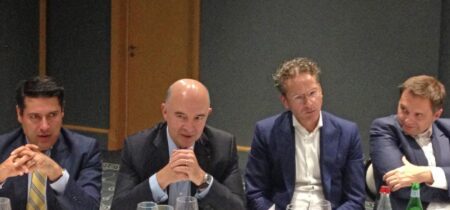The Ministers also underlined the benefits of the web economy and in that context they agreed that a Corporate Tax Framework for the digital economy is urgently needed. They welcomed the ambitious timetable put forward by the Estonian Council presidency for reaching a decision on the issue in December.
Italian Finance Minister Pier Carlo Padoan stated:
“Creating the right level playing field for taxing both traditional and digital business is crucial. We fully support the notion of taxing profits where they are generated and believe that this should also apply for businesses operating in the digital domain. In our effort in finding the right framework for corporate digital taxation we strive to promote innovation, create new jobs, and create fair and redistributive tax systems. It is about time for web giants to start contributing their fair share.”
The meeting was also attended by:
- Pier Carlo Padoan – Finance Minister, Italy, Chair
-
Houliarakis George – alternate Minister for the Ministry of Finance, Greece (observer)
- Jeroen Dijsselbloem – Finance Minister, The Netherlands
- Ricardo Mourinho Félix – Deputy Secretary of State and Finance, Portugal
- Peter Kazimir – Finance Minister, Slovakia
- Magdalena Andersson – Finance Minister, Sweden
- Karolina Ekholm – State Secretary at the Ministry of Finance, Sweden
- Pierre Moscovici – Commissioner for Economic and Financial Affairs, Taxation and Customs
- Maria João Rodrigues – Vice President of the S&D Group in the European Parliament
- Roberto Gualtieri – Chair of the ECON Committee in the European Parliament
- Pervenche Beres – S&D Coordinator for the ECON Committee in the European Parliament
- Yonnec Polet – Deputy Secretary-General, PES



